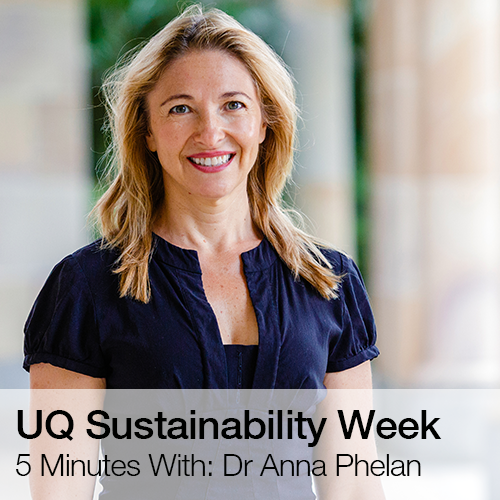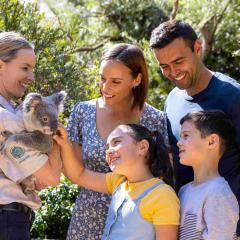
Dr Anna Phelan is an ecological economist and research fellow. Her current research lies at the interface between ecological and behavioural economics and encompasses: sustainable livelihoods, ocean plastic pollution, sustainable tourism, and community-based enterprise development.
We spent 5 minutes with Anna to discuss her current work within CCRES and her upcoming work with the UQ Global Change Scholars Program.
Can you tell us about your work with CCRES?
For the past two and a half years I’ve been part of the Business Development team for the GEF and Worldbank funded CCRES (Capturing Coral Reef and Related Ecosystem Services) project. The CCRESS project seeks to unlock the natural wealth of coastlines in the East Asia-Pacific region, in order to enhance livelihoods and food security, improve community health and wellbeing, and sustain coastal ecosystems in the region.
My role within the Business Development team has been to help conceive and develop three activities:
- The Ecosystem-based Business Development Approach – uses ecosystem services and biodiversity as part of an overall sustainable development strategy to help support sustainable livelihoods and local economic development in low resource coastal communities. The program steps participants through a thinking process designed to help identify enterprise-led solutions that share values along the supply chain and do not cause damage to the environment.
- Eco-Biz Challenge – is a business plan competition designed to discover and support nascent entrepreneurs in rural and remote areas and encourage businesses that are environmentally and socially sustainable.
- Waste2Enterprise (W2E) – is a workshop that provides participants in low-resource coastal communities with adaptable strategies for improving waste management, and capturing value from the waste they collect. The workshop is designed to inspire and empower, and provide participants with strategies for livelihood diversification and plastic-waste management.
What has been some of the innovations you’ve seen come out of your work with CRESS?
The Eco-Biz Challenge attracted over 500 community members, comprising representatives from more than 40 villages. Participants attended workshops focused on sustainable business approaches and business skills training. From the 43 semi-finalists, there were three winners – each of whom was awarded a one-time equity grant to start or expand their new business idea.
The winning business ideas included a small aquaculture business focusing on floating grouper and lobster grower cages. A small eco-tourism business focused on conservation of mangroves, awareness and educational tourism for local school children. And the final winner was a small gallery which is focused on products, including handicrafts, made from plastic waste, as well as bags and small tables made from recycled tyres.
How do you see your work in sustainability continuing into the future?
I was recently awarded the UQ Global Change Institute Flagship Grant. My project will be focused on ‘Small Islands Initiative for a Plastic Free Ocean’ and will aim to deliver policy-relevant research on the global challenge of ocean plastic pollution using an interdisciplinary approach.
Working with remote coastal communities at four sites in Eastern Indonesia, I will seek to identify community-based waste management strategies and characterise key industries influencing local and regional scale waste management practices for small-island communities in Indonesia. In partnership with Indonesian Institute of Science (LIPI) this project aims to deliver research outputs that address major cross-cutting issues of supply chain solutions, tourism industry impacts, and point source pollution.
Can you tell us a little about the Global Change Scholars Program?
Earlier this year I was appointed as the Director and Academic Coordinator for the Global Change Scholars Program. The overall aim of the program is to produce future research leaders with a deep understanding of global trends, the challenges and opportunities they present, and an awareness of how to drive the changes necessary towards a sustainable future.
The program runs every year and provides a unique experience for 30 of UQ’s top PhD students from across the University’s faculties and institutes to engage in sustainability focused transdisciplinary discussions and research. This year’s cohort has three students from UQ Business School:
- Patrick Junior
- Maria Golubovskaya
- Yawei Jiang



